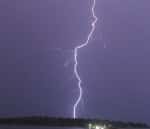A study released on Tuesday shows pricing for residential electricity supply in Australia is among the highest in the world, with South Australia at the top of the list.
“Australian Electricity Prices: an International Comparison” was commissioned by the Energy Users Association Of Australia (EUAA). The EUAA says the study busts the myth of the cost of electricity in Australia being low to mid range.
Some key findings from the report, which was based on household electricity prices in 91 jurisdictions around the world:
– Average household electricity prices in Australia are now higher than those in Japan, the European Union, the USA and Canada.
– In 2011, household electricity prices in four of Australia’s eight State/Territories – South Australia, New South Wales, Victoria and Western Australia – were in the top six countries
– Three-quarters of Australia’s population are paying electricity prices that are among the six highest in the developed world.
– Tasmania, Queensland, the ACT and the Northern Territory lie outside of the top ten, but they still rank in the top one-third.
According to EUAA’s Executive Director, Roman Domanski, the results of the study also indicate Australian electricity prices are expected to ” increase further and significantly in the next few years”, which will likely make the nation’s electricity prices the highest in the world.
Commenting on the report, Sustainable Energy Association (SEA) Chief Executive Professor Ray Wills said the findings prove the case for small scale rooftop solar panel systems.
“With the price of electricity for both domestic and business customers increasing, solar panels deliver electricity that, combined with existing rebates, can potentially pay the investment in panels back within 4-7 years, with the effect that electricity sourced from those panels after that point will be at no further cost.”
Professor Wills said for people with mortgages, by generating their own electricity through a home solar power system, the ability to meet their mortgage will not be compromised by rising energy bills.
While the current Solar Credits rebate can significantly reduce the cost of acquiring solar panels and consequently accelerate the payback time; the rebate will be slashed 33% soon. With systems needing to be installed by June 30 this year in order to qualify for the current rebate level, a rush on installation bookings is expected to start soon.
The full “Australian Electricity Prices: an International Comparison” report can be viewed here (PDF).












































